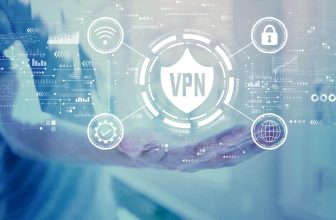In the digital age, privacy and security are primary concerns for internet users. As governments and corporations ramp up surveillance efforts, the demand for anonymity has soared. One of the most popular tools for achieving privacy online is the VPN (Virtual Private Network). But does a 100% anonymous VPN really exist? In this article, we will explore the intricacies of VPN technology, its limitations, and whether achieving complete anonymity online is realistic.
What is a VPN?
A VPN creates a secure, encrypted connection between your device and a remote server. This technology allows you to:
- Hide your IP address: Your actual location is masked by the IP address of the VPN server.
- Encrypt your data: Any data transmitted is protected from prying eyes, whether it’s hackers or your internet service provider (ISP).
- Bypass geo-restrictions: A VPN lets you access content that may be restricted in your country.
However, despite these advantages, the question remains: can a VPN offer complete anonymity?
The Illusion of Complete Anonymity
While VPNs provide an impressive level of privacy, they don’t offer 100% anonymity. Here’s why:
1. The VPN Provider Still Knows Your Identity
Your VPN provider is the gatekeeper of your connection. Even though a VPN disguises your online activities from external entities like ISPs, your VPN provider still has access to:
- Your IP address: The VPN server knows where your request originated from.
- Connection logs: Some VPN services may keep logs, such as connection times, bandwidth usage, or even IP addresses. While many claim to be no-log VPNs, transparency and trustworthiness are essential.
In essence, while your activity may be invisible to most third parties, your VPN provider still plays a crucial role in maintaining privacy, which means a level of trust is involved.
2. Data Retention Laws
Even if a VPN provider promises not to log data, they may still be legally obligated to retain certain information. Data retention laws vary depending on the country the provider operates in. Some jurisdictions, like those under the Five Eyes or Fourteen Eyes alliances, can demand data from VPN companies and share it across borders. This undermines the promise of complete anonymity.
3. Payment Methods and Account Creation
Most VPNs require users to sign up with an email address and process payments via credit cards, which can be traced back to an individual. Though some services offer anonymous payment methods, such as cryptocurrency, this still isn’t a perfect solution for anonymity, as transactions on the blockchain are often traceable.
4. Web Activity and Fingerprinting
Even with a VPN, your online behavior can give away clues about your identity. Web trackers, cookies, and browser fingerprinting can still be used to gather information about your device, location, and activities. These methods operate independently from your IP address, which means a VPN can’t fully protect you from fingerprinting techniques.
Are There Truly Anonymous VPN Providers?
Some VPN services have built their reputations around privacy-first practices. These providers offer a combination of advanced features designed to enhance anonymity:
1. No-Log VPNs
A no-log policy means the VPN provider claims not to store any user activity logs. ExpressVPN, NordVPN, and ProtonVPN are some of the industry leaders that offer audited no-log policies. Independent audits ensure that these companies adhere to their promises of not storing user data.
2. Bitcoin and Cryptocurrency Payments
Some VPNs allow users to pay with Bitcoin or other cryptocurrencies, which adds an extra layer of anonymity to the payment process. However, this anonymity is not foolproof, as cryptocurrency transactions can be traced under certain circumstances.
3. Multi-Hop VPNs (Double VPN)
A multi-hop VPN routes your traffic through two or more servers, adding extra layers of encryption and making it more difficult to trace your online activities back to you. While this enhances privacy, it can still fall short of guaranteeing full anonymity.
4. Tor over VPN
Some VPNs, like NordVPN and ProtonVPN, offer the option to use Tor over VPN. This combines the encryption and privacy of a VPN with the anonymity of the Tor network, which anonymizes your traffic by bouncing it through multiple volunteer-operated nodes. Though this setup can be incredibly secure, the Tor network itself is not flawless and can still be compromised under certain conditions.
The Realistic Expectations of Using a VPN
So, can a VPN make you 100% anonymous? The simple answer is no. A VPN is an excellent tool for enhancing your privacy and security, but it’s not a silver bullet for complete anonymity. There are several factors outside of a VPN’s control that can still expose your identity, such as:
- Tracking technologies: Web trackers, cookies, and fingerprinting techniques.
- Human error: Sharing personal information online while connected to a VPN.
- Legal frameworks: Governments can still compel VPN providers to hand over data.
VPNs as Part of a Larger Privacy Strategy
While VPNs don’t offer absolute anonymity, they are an essential part of a larger privacy strategy. When combined with other tools such as privacy-focused browsers (like Tor Browser or Brave), encrypted communication tools, and good browsing habits, you can significantly reduce your online footprint.
Enhancing Anonymity with Additional Tools
To achieve the highest level of privacy possible, here are additional tools and practices to consider:
- Tor Browser: The Tor Browser routes your traffic through multiple nodes, enhancing your anonymity beyond what a VPN can offer.
- Privacy-Focused Search Engines: Use search engines like DuckDuckGo or Startpage that don’t track your searches.
- Avoid Social Media Tracking: Be mindful of social media platforms that track your online behavior across websites.
- Clear Cookies and Cache Regularly: Ensure you’re regularly deleting your browsing data to prevent tracking mechanisms from accumulating too much information.
- Use Two-Factor Authentication: Secure your accounts with 2FA to ensure that even if your data is compromised, hackers cannot easily gain access.
Conclusion: Does a 100% Anonymous VPN Exist?
A VPN is a powerful tool that can significantly increase your online privacy by masking your IP address and encrypting your data. However, the claim that a VPN can provide 100% anonymity is a myth. There are inherent limitations, from the trust you place in your VPN provider to the multitude of tracking technologies that operate independently of your VPN.
To achieve a higher level of anonymity, users should combine a VPN with other privacy tools, practice good security habits, and be aware of the legal and technical limits of online privacy. Ultimately, while a VPN is an essential component of a secure online experience, complete anonymity remains an elusive goal.






